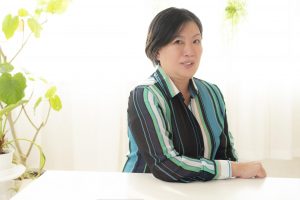
Yuko Murakami
Professor, Graduate School of Artificial Intelligence and Science, Rikkyo University
-
Biography
Academic appointments
2020-current Professor, Graduate School of Artificial Intelligence and Science, Rikkyo University
2019-2020 Advisor, President’s Office (Launching committee of the Graduate School of
Artificial Intelligence) Rikkyo University
2018-2020 Specially Appointed Professor, School of Science, Rikkyo University
2013-2018 Associate Professor, Graduate School of Arts and Letters, Tohoku University
2008-2013 Associate Professor, Graduate School of Science, Tohoku University
Education
2005 Ph.D. (Philosophy) Indiana University
1994 M.Sci. (History and Philosophy of Science) University of Tokyo
1991 B.A. (History and Philosophy of Science) University of Tokyo
Grants and research projects
2020-2028 Core technologies for trusted quality AI systems, JST-CREST, research area advisor
2020-2023 Physical and statistical approach toward absolute dating of ancient and medieval castles in Anatolia, JSPS Grant-in-Aid for challenging exploratory research, Project member
2019-2023 Literacy in a post-truth age. JSPS Grant-in-Aid for scientific research (A), Project member
2018-2023 Toward a global standard of dignity as a philosophical concept. JSPS Grant-in-Aid for scientific research (S), Project member
2016-2024 Human-Information Technology Ecosystem, JST-RISTEX, research area advisor
2016-2019 Updating the concept of morality based on science. JSPS Grant-in-Aid for scientific research (B), Project member
2016-2019 A study on the promotion of gender equaity and support for early career researchers in philosophy from theoretical and practical standpoints. JSPS Grant-in-Aid for scientific research (A), Project member
2015-2018 Singularity and logic of responsibilities Grant-in-Aid for scientific research (C) Principal Investigator
Awards and Honers
2019 Best paper award, AEDEM XXVIII
2017 Best paper award, Symposium on Information Education, Information Processing Society of Japan
2015 Best paper award and Yamashita memorial award, Information Processing Society of Japan
Publications and talks in English
Articles
Yuko Murakami, Philosophy and Higher Education in Japan. Tetsugaku 1, April 2018.
Book Chapters
Yuko Murakami and Manabu Sumida, in Michael Matthews (ed.) History and Philosophy of Science and Nature of Science Research in Japan: A Historical Overview. International Handbook of Research in History, Philosophy and Science Teaching, Springer, 2014.
Yuko Murakami, Utilitarian Deontic Logic. Advances in Modal Logic, Vol. 5. pp.211-230. Renate Schmidt, Ian Pratt-Hartmann, Mark Reynolds, and Heinrich Wansing (eds.), Kings College Publication. 2005.
Theses
Yuko Murakami, Modal Logic of partitions.〔Doctoral dissertation〕 Indiana University, March 2005.
Yuko Murakami, Non-normal relevant modal logic. Master’s thesis, University of Tokyo, March 1994.
Invited talks
Yuko Murakami, Yuko Murakami, Women in Philosophy in Japan. Libori Summer School, 2019, Paderborn University, 2019. (invited talk)
Yuko Murakami, ICT Demands Conceptual Restructuring of Science, Society for Social Studies of Science 2017, Boston
Translations to Japanese
1995 Palle Yourgrau “The Dead”
2005 Robert Fogelin, Walking the tightrope of reason: the precarious life of a rational animal.
2006 John W. Dawson, Logical Dilemmas: the life and work of Kurt Godel.
2015 Andrew Hodges, Alan Turing: The Enigma. Updated edition with a new preface.
2020 Raymond Smullyan, Gödel’s Incompleteness Theorems.
-
Contribution at the IAPh 2021 conference
“Education” to obscure academic women in Japan
In the intellectual history in modern Japan, women have been dwarfed in the position to be remembered by posterity as “educators,” whatever their specialty. Professionalism is completely ignored and only a life dedicated to girls’ education is celebrated. People who become experts are treated as second-rate. It’s “institutionalized mansplaining.”
The most significant example: Tsuda Ume. She established Tsuda College and empower Japanese women through her life. She was one of the first five women, who were brilliant and carefully selected to study the Western culture in the United States. She was only five years old when she left Japan, and successfully graduated from the Bryn Mawr College in 1890.The college, however, just remarks on her as “become English teachers, to enlighten other Japanese women” not mentioning her academic area at all. In fact, she did not just study biology and education in the Bryn Mawr, but also published an academic article in biology: Morgan, T. H., and Ume Tsuda. “The orientation of the frog’s egg.” QJ Microsc Sci 35 (1894): 373-405.
Another example is Yasui Tetsu. She studied philosophy in the United Kingdom, but also is remembered only as an educator -
EcoTechGender Vision
You cannot copy content of this page








